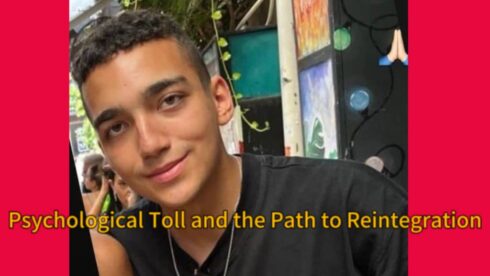Edan Alexander, the last known American hostage held by Hamas since the brutal October 7th attack on Israel, is set to be released under a new ceasefire agreement mediated by Qatar and Egypt. The 19-year-old Israeli-American dual citizen was captured while serving with the Israel Defense Forces near the Gaza border and has since become a symbol of international pressure on Hamas to release remaining hostages.
Edan Alexander’s release comes amid intensifying geopolitical maneuvering, with U.S. and Israeli officials reportedly involved in backchannel negotiations that have lasted for weeks. Sources suggest that the Biden administration pushed hard for the inclusion of American citizens in any release deal, leveraging both diplomatic and financial tools to ensure Alexander’s freedom. His return is expected to reshape public discourse around the legitimacy and conditions of hostage diplomacy in the Middle East.
Humanitarian Victory or Political Pawn?
Edan Alexander’s name has become emblematic of broader debates around humanitarianism versus political opportunism. While many celebrate his release as a moral triumph, critics argue it may serve as a tactical maneuver for both Hamas and the Israeli government, each seeking leverage in an increasingly volatile conflict zone.
Edan Alexander’s captivity was used by pro-Israel advocates to galvanize support for continued military operations in Gaza, while his expected release is now being touted by Hamas as a goodwill gesture aimed at prolonging the current ceasefire. Analysts warn this dual narrative could inflame tensions further, especially among factions opposed to any form of negotiation with terror-linked organizations.
Behind the Ceasefire Curtain: The Secret Diplomacy That Freed Alexander
Edan Alexander’s anticipated liberation was not born of spontaneous goodwill but emerged from a labyrinthine web of covert negotiations involving CIA Director William Burns, Mossad Chief David Barnea, and high-level Qatari intermediaries. According to insiders, Hamas demanded significant concessions, including humanitarian aid and the release of Palestinian prisoners, in exchange for American and Israeli captives.
Edan Alexander was reportedly being held in a covert underground location in Khan Younis, often moved at night to evade Israeli reconnaissance drones. His release hinges on a fragile framework built on mutual distrust, fragile truces, and a looming sense of political desperation from all sides. The Biden administration’s role, while downplayed officially, is being viewed as critical in breaking the months-long impasse.
Divided American Reactions: Patriotism vs. Policy Critique

Edan Alexander’s case has ignited polarizing debate in the United States, with some hailing him as a patriotic hero unjustly detained, while others criticize the U.S. government for intervening selectively in hostage situations based on citizenship, ethnicity, or political value. His release raises uncomfortable questions about the disparity in rescue priorities.
Edan Alexander’s dual nationality has further complicated the narrative. Right-wing commentators argue that his Israeli military service should disqualify him from U.S. intervention, while progressives worry his release might set a precedent that encourages future hostage-taking as a tool for diplomatic leverage. The case has inadvertently exposed fractures in American foreign policy ethics.
The Future of Hostage Diplomacy in the Middle East
Edan Alexander’s story may serve as a turning point in how Western governments respond to hostage situations in regions controlled by non-state actors. Experts suggest that the negotiation tactics used in this instance could become a blueprint for future engagements, particularly when citizens are used as pawns in larger political games.
Edan Alexander’s ordeal highlights a grim reality: hostage-taking is now an entrenched tactic of asymmetric warfare, and traditional military might may no longer be sufficient to prevent it. His case will likely spark renewed debate within NATO, the UN, and other international bodies about how to enforce human rights in situations where conventional diplomacy has failed.
Psychological Toll and the Path to Reintegration
Edan Alexander’s release is not the end of his journey but the beginning of a complex and uncertain reintegration process. Experts in trauma recovery caution that returning hostages often experience long-term psychological damage, including PTSD, depression, and survivor’s guilt—especially when others remain in captivity or perish.
Edan Alexander will undergo intensive debriefing by Israeli and American intelligence agencies, followed by psychological counseling and media shielding. Advocates argue that returning hostages should not be paraded as propaganda tools but treated with dignity and care. His voice, once silenced in a Gaza tunnel, may now become one of the most compelling testaments to the human cost of political conflict.














